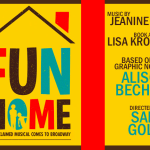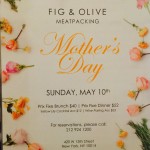
I grew up in the 1970s and clearly remember watching The Mary Tyler Moore Show with my mom and two sisters. I was really young when it aired, but even then I knew it was revolutionary. Mary and the rest of the cast had us all paying attention to a show about a single female news producer living and working in a male dominated world. What was amazing was that it was made during the height of the blossoming of women’s rights. How they did that is a story worth telling, and Jennifer Keishin Armstrong has skillfully done just that in her new book Mary and Lou and Rhoda and Ted: And all the Brilliant Minds Who Made The Mary Tyler Moore Show a Classic. We recently interviewed her to get down the lowdown on the book and why she wrote it 30 years after the show ended.
The Culture Mom: Why the Mary Tyler Moore Show as the focus of your book?
JKA: Well, I’ve always been a fan, since I was a little girl. But when I wrote for Entertainment Weekly, I covered a lot of women in comedy — particularly the rise of Tina Fey. She and many others cite the show and Mary as huge inspirations, which makes sense — in the ‘70s, this show was the first to feature a really independent heroine in a show that was truly great. In any case, once I noticed that, I started doing some research, and found out that the show was also the first to hire several women as writers. That seemed like a story worth telling, and it also reflects nicely on modern times, when we’re finally seeing so many more comedies written by and starring women.
TCM: The book deals with the women’s movement as a result of the show hiring so many female writers. Is that because of your own interest in feminism? What were some of the most interesting stories you heard about this time period and how far do you think we have come in 2014?
JKA: Certainly some of that reflects my own interest in feminism, as well as just the fact that this was a huge social force at the time, and I’m always interested in the social forces that shape the pop culture of the time. It’s hard to separate a groundbreaking show about a single, working woman from feminism. And pretty much every female writer on the show identifies as feminist and was going to women’s movement meetings at the time. I love those stories; there’s something really romantic and exciting about them to me. It seems like such a hopeful time to be a woman — suddenly they felt like they could have careers, be independent, have premarital sex without guilt. Of course, we know that things weren’t all perfect then, and certainly things would be bumpier in the future than these women probably envisioned. And even their personal lives were still difficult — many of them spoke about the difficulties of finding a male partner as a woman who’d succeeded so much on her own. In some ways, we haven’t come that far at all since then: It’s still a struggle to get a reasonable number of women onto comedy writing staffs. And look at the public stink everyone had to make to get SNL to hire some women of color! On the other hand, if you watch, say, Girls in comparison with The Mary Tyler Moore Show, you see we’ve made some pretty significant strides since a time when Mary taking the pill was a big deal.
TCM: The Mary Tyler Moore Show depicted a woman’s work life, so it’s not too surprising that Mary and Lou and Rhoda and Ted does the same. The workplace that emerged was a revelation: with men recognizing the value of women’s stories and actively seeking women for the writing staff; with women writers mining their own lives for material and producing scripts that incorporate the everyday experiences of women, which were- at that time- seldom represented on TV. Why was the show so revolutionary?
JKA: That’s exactly why. I think it felt real, and of its time. Most comedy before that was very schticky. I Love Lucy was great, but it was so great that no one could see any other way to do things for a few decades afterwards. Mary started with great characters, two of whom happened to be single, independent women, and worked from there. So everything carried an extra layer of meaningfulness, because we cared about the characters. From there, we could go anywhere with the characters, whether that meant Mary still calling her boss “Mr. Grant” despite other markers of liberation, or Mary staying out all night, or Rhoda entering and winning a beauty contest.
TCM: What was it about The Mary Tyler Moore Show that captured American viewers?
JKA: I do think it was the characters. We could all see ourselves in at least one of the characters, or maybe even a few of them. We all knew or wanted to know a Lou, a Ted, a Murray, a Mary, a Rhoda, a Phyllis. We felt everything that happened to them.
TCM: How did it impact the TV landscape?
JKA: Besides its impact on the depiction of women, it had more artistic effects as well. It made sitcoms more character-driven and pushed them closer to having serialized story arcs. You never used to see characters change and grow over time on sitcoms; every episode had to be self-contained, almost like a cartoon. On Mary, we saw Lou go through a divorce, and even saw his ex remarry. We saw Rhoda leave town and Betty White’s Sue Ann Nivens join the gang. We saw Mary grow from a nervous secretary to a confident executive. We saw Ted go from a shallow womanizer to a married father.
TCM: Which characters did most women relate to? And you?
JKA: I think the Mary-or-Rhoda dichotomy is a real one: We all feel more like one than the other, and we all aspire to qualities of one or both. The women on the show had a joke that Mary was the one we all wanted to be and Rhoda was the one we all were. I disagree, at least from a 2014 perspective. I grew up a Mary — a people-pleasing perfectionist — but always loved Rhoda because I aspired to her humor and no-nonsense attitude. I think I’m a Rhoda now, and I couldn’t be happier.
TCM: Tell us about the writing process. I felt like I was on the set of the show and truly in the know during its entire run – how did you do that?
JKA: God, I have no idea sometimes. Every time I start a new book I wonder, “How does this go again?” But I can say that it’s mainly about reporting. I wish it could be done some other magical way, but it’s just about getting as much of the details as possible via interviews and research and assembling them into a story. I know what I like from a story, so as I write I just go after the information I need. I also interviewed something like 30-40 people, and worked pretty closely with a few of them — particularly the female writers, like Treva Silverman, whose life stories I was basically telling. I would be writing, say, Treva’s story, and was lucky enough to be able to email her with weird questions like: Were you an awkward outcast as a kid, or were you pretty put-together? What did you usually wear when you were working? Was there pot smoking? (That was key, obviously, in the ‘70s.)
TCM: Everyone you interviewed seemed very forth coming – was that the case?
JKA: For the most part, yes. Some people were certainly chattier than others. I think most of the time, in cases like this, if people agree to be interviewed, they’ll be pretty forthcoming. If they don’t want to be forthcoming, they simply ignore my interview requests!
TCM: You talk a lot about emotional attachments between actors and characters in your book. Did you develop one to the people you were writing about? How did you connect with them?
JKA: Definitely! It was such a treat because I worshipped these people since I was a kid watching. The actors, obviously. It was one of the great moments of my life to interview Rhoda — that is, Valerie Harper, who couldn’t have been sweeter. It was surreal to be sitting across from Ed Asner at his home while he re-enacted the “You’ve got spunk!” line for me. And I developed genuine friendships with a few of the female writers, like Treva Silverman and Gloria Banta. I felt like they were my very own “characters” because they were the part of the story people were less likely to know; they felt like mine and only mine more than the others.
TCM: Brooks had once expressed his belief that there was a world of comedy trapped inside his wife’s purse, which he could neither access nor entirely understand. But he was wise enough to recognize that limitation and bring in a team of mostly untrained female writers for Mary Tyler Moore who could. What was he like and how did he know whom to hire?
JKA: He was such a thrill for me to talk to, too, just because I knew his name from so many movies I loved. He strikes me as brilliant, obviously, and very in the moment. He knows what he needs to make good work, and goes after it. He was big on research from the beginning of his career. So it makes sense that he’d just think, “Hmm, I don’t know what it’s like to be a young woman in the ‘70s, so I’ll go get some young women in the ‘70s to tell me.” He and Allan Burns, who created the show together, both have this very practical view of the whole thing. They don’t see themselves as feminists or anything. They just see it as doing what needed to be done. I still think that makes them heroes, because other men at the time would’ve just hired the same old guys and gone about telling us what they thought it meant to be a woman in the ‘70s. And they mentored lots of rather inexperienced writers in the process, which is extraordinary.
TCM: How did you find Joe Rainone, the show’s biggest fan?
JKA: Joe is one of my favorite things about my book. Both Jim and Allan had mentioned him during interviews, but they mis-remembered his last name, so every time I’d tried to find him, I came up with nothing. Finally, during my final revision of my manuscript, I went to look up some particularly obscure fact online, and whatever I’d Googled ended up unearthing a very old blog post before we called them that — one of those primitive ‘90s sites — where a guy had written this elaborate account of having written letters to The Mary Tyler Moore Show and eventually getting to visit the set. As soon as I saw his name, I knew it was the guy. I looked him up under the right name spelling and had his address within seconds. Given that he wrote weekly letters to the show, you can imagine that he responded well to my sending him a card in the mail and asking to interview him.
TCM: What is your single favorite episode of the show?
JKA: When forced to decide, I usually choose “Rhoda the Beautiful.” First of all, I’m a Rhoda girl, like I said. And this episode was written by Treva Silverman, who told me a wonderful story about it; I can’t separate my research from my feelings about episodes anymore. This episode also happens to be very funny and poignant and interesting from a feminist perspective. In it, Rhoda, who has major body image issues, is coerced into entering a beauty contest at the department store where she works. She complains the whole episode because she’s so sure she’ll be humiliated. But she’s also recently lost a bunch of weight on a Weight Watchers type program. (I also love that she’s doing it with Murray, the unusual choice of a man trying to lose some weight, too. Fun fact: Valerie and Gavin, who plays Murray, were doing Weight Watchers together in real life.) In any case, she wins, but can’t tell Mary at first because it’s all so uncomfortable for her. She finally does, and they celebrate. The story Treva told me was that she’d written that about her own body image issues, as well as those of many of her girlfriends. She watched Val accept her Emmy that year, for that episode, while she was at a weight-loss spa and cried as Val thanked her by name. So much sisterhood there!
TCM: Who did you enjoy talking to the most?
JKA: Probably Valerie, just because she was such an idol of mine. But I have intense affection for the female writers who became such wonderful role models to me as well.
Mary and Lou and Rhoda Ted was published by Simon & Schuster and is available at all traditional and online booksellers.







 Follow
Follow




Speak Your Mind